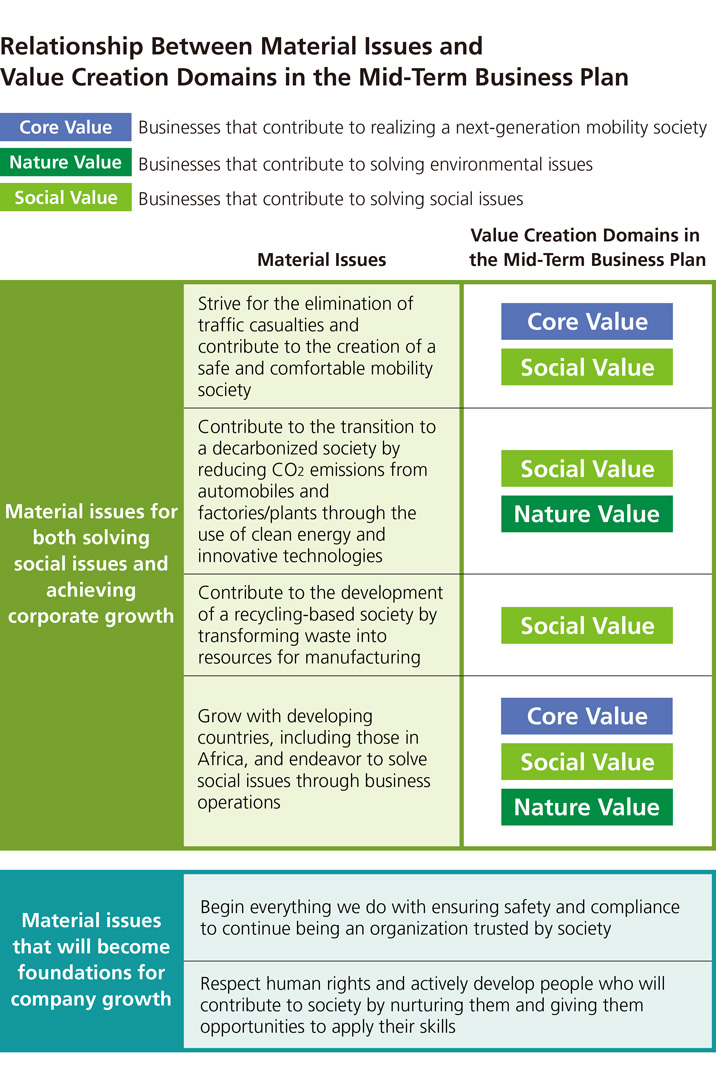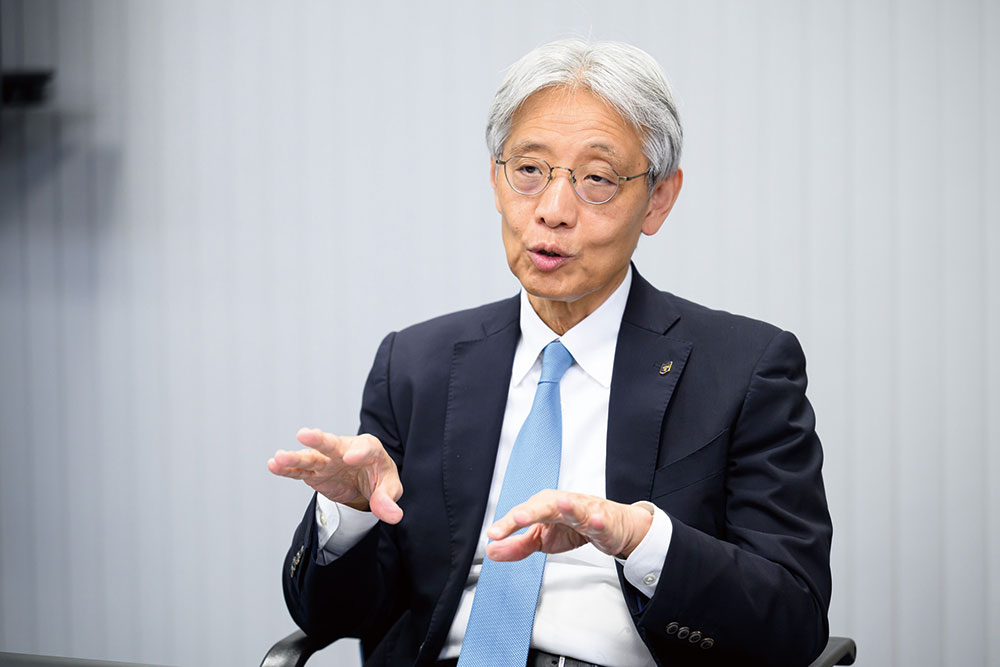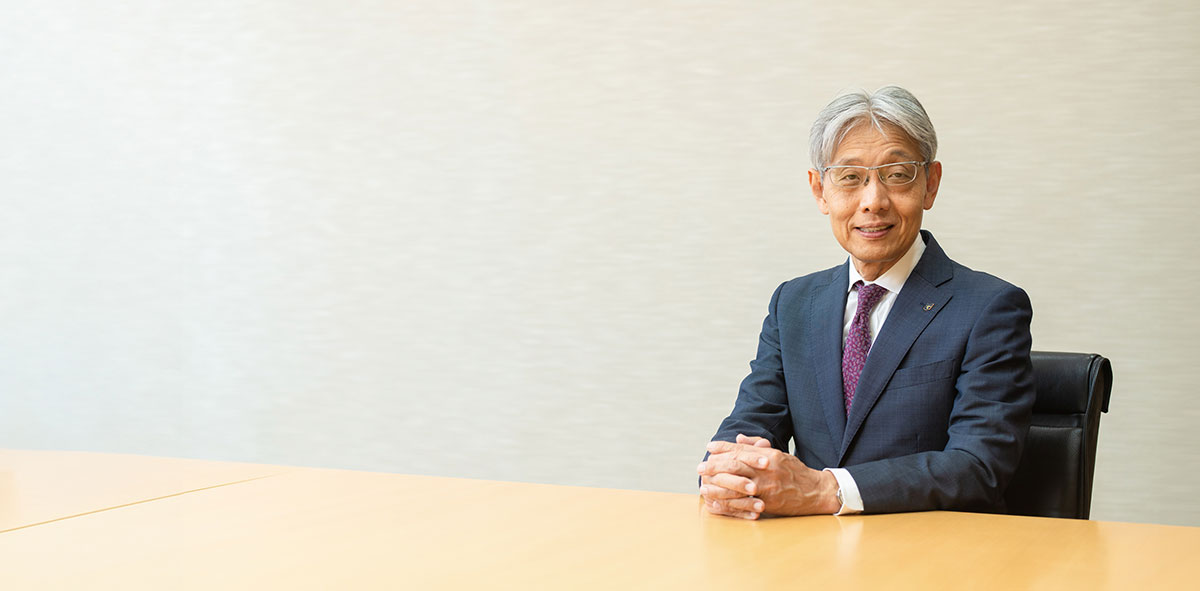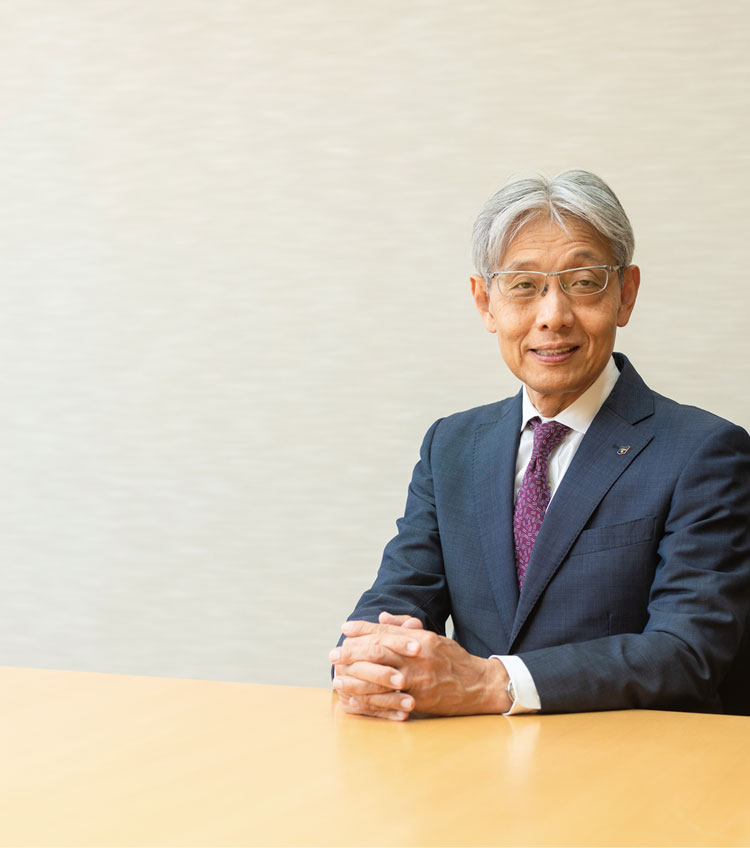CSO Message
Passing on a Better Earth to the Children of the Future
As a member of society and the Earth, the Toyota Tsusho Group is firmly aware of the direct connection between its corporate activities and the sustainability of the global environment and society. Our businesses have already been severely impacted by a range of issues, from climate change to loss of biodiversity and effective utilization of resources, which could threaten our very sense of purpose.
With this in mind, our corporate group regards sustainability as synonymous with good management and as the cornerstone of continued growth and value creation. Rather than just addressing environmental and social issues, we also see them as new opportunities. We are therefore accelerating our evolution toward a sustainable business model while aiming to become a more trusted company.
By adding the word "children" to our corporate group's mission, we have clarified our responsibility to pass on a better Earth and society to the next generation. We consider it an important mission to realize a global environment and sustainable society in which the children of the future will be able to live with peace of mind.
Depicting the Links Between Work and the Future Through a Story
The Toyota Tsusho Group has identified six material issues for realizing a sustainable society. They comprise four material issues for solving social issues and achieving corporate growth, and two issues that will become foundations for the first four. Together, they form the basis for value creation within our corporate group.
The four priority issues are closely linked to the value creation domains of social value, nature value, and core value within our Mid-Term Business Plan, while implementation of the plan is the mechanism by which we address the materiality.
For example, our circular economy businesses that are driving waste reductions and resource utilization are growth investment businesses for us in the social value domain, and they contribute to realizing a recycling-based society. Equally, our renewable energy businesses are growth investment businesses for us in the nature value domain, and they support the transition to a decarbonized society.
These businesses are also directly linked to the realization of our corporate group's "Be the Right ONE" vision (of being an irreplaceable and one-and-only group). We believe that this approach, of continuing to take on challenges and driving change, will be the force that links the work of every employee to the future.
Implementation of the Mid-Term Business Plan is structured to directly address the materiality of our corporate group. It is also an extremely clear message to people both inside and outside the company, and it is an important element for ensuring a deeper understanding of our company. We believe that consistency in this story will encourage independent initiatives by employees and facilitate a clearer understanding among stakeholders of our corporate group's overall direction and value creation.
The two material issues that will become foundations for the growth of the Toyota Tsusho Group are rooted in the universal values of safety and human rights. Safety and human rights are the basis for all business activities and important pillars that support sustainable management.
The psychological factors of excessive pressure and anxiety are often behind improper conduct. To avoid such situations, therefore, it is essential that management continually communicates the correct values in an easy-to-understand manner. We believe that a culture that allows employees to speak up with peace of mind is directly linked to the health of an organization and sustainable enhancement of corporate value.

Elevating Sustainability Management to a Higher Dimension
Sustainability Management Across the Entirety of Our Supply Chains
The Toyota Tsusho Group aims to ensure that safety, respect for human rights, and a rich environment and society, which are all values that anyone would naturally want, are able to penetrate not only our corporate group but the entirety of our supply chains as well.
In terms of greenhouse gas emission reductions, for example, a comprehensive response is needed, including visualization of emissions, support for adopting reduction measures, and support for supplying renewable energy. Within our corporate group, we have a unique set of assets, including operational know-how acquired through deep involvement in our various worksites in Japan and overseas, practical knowledge refined at each of those sites, and site response capabilities that leverage that know-how and knowledge. With these assets as our foundation, we can provide effective solutions for the entirety of our supply chains.
Our corporate group's supply chains extends beyond its business partners to include industrial and local networks as well, and this carries the potential for new partnerships and markets.
We consider that efforts to put sustainability into practice throughout our supply chains are investments in the future rather than costs. This perspective is what enables us to simultaneously nurture seeds for the realization of a sustainable society and the future growth of our business.
Further Thoughts on External Perspectives
We view external evaluations as an important tool for accurately identifying current social issues. Issues identified by these evaluation organizations reflect the issues shared by society as a whole, and helping to address them not only contributes to society but also provides opportunities to turn our acquired knowledge and know-how into seeds for future businesses as well.
External evaluations are also a means for confirming that we are making our disclosures appropriately and sincerely. Through high-quality disclosures, we will deepen our engagement with stakeholders, while ongoing dialogue will strengthen relationships of trust and lead to sustainable value creation.



